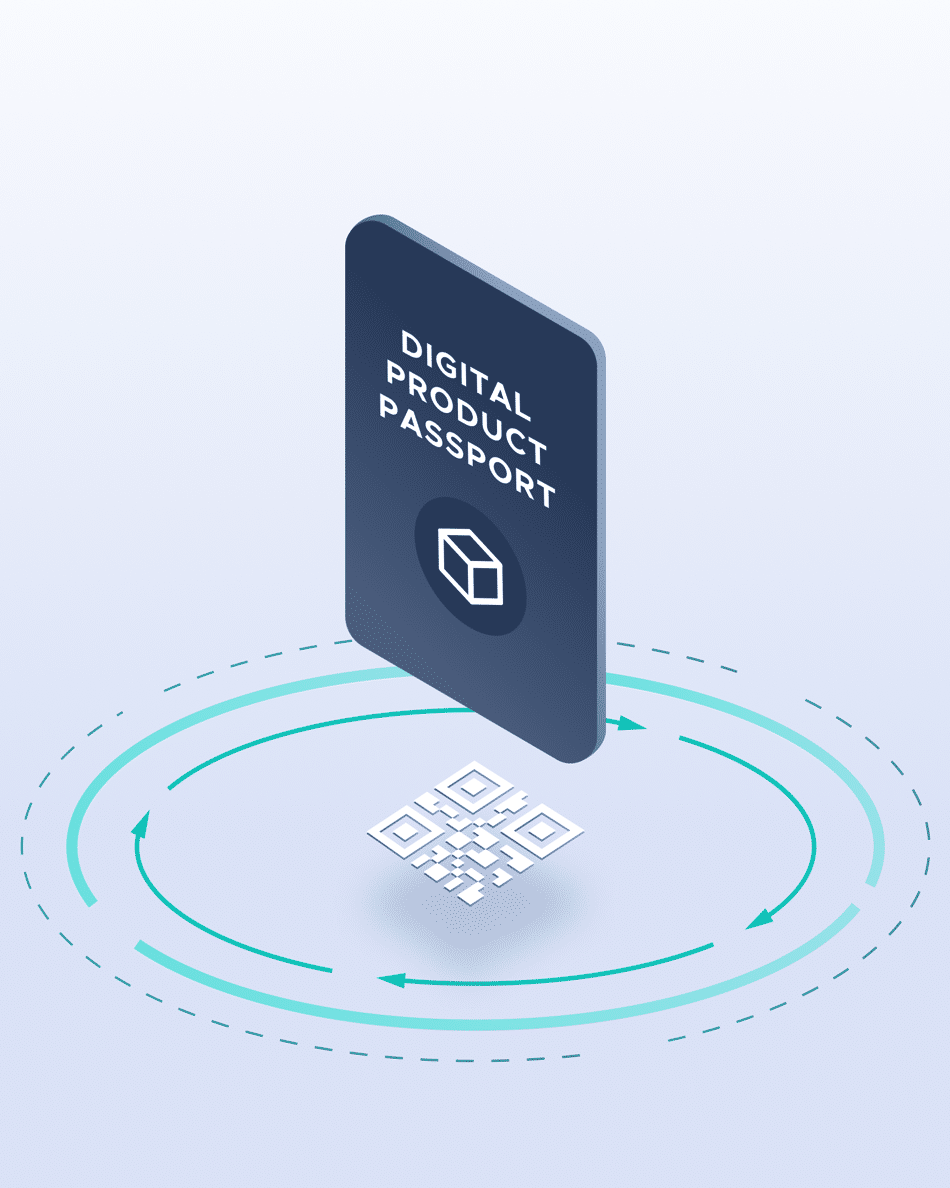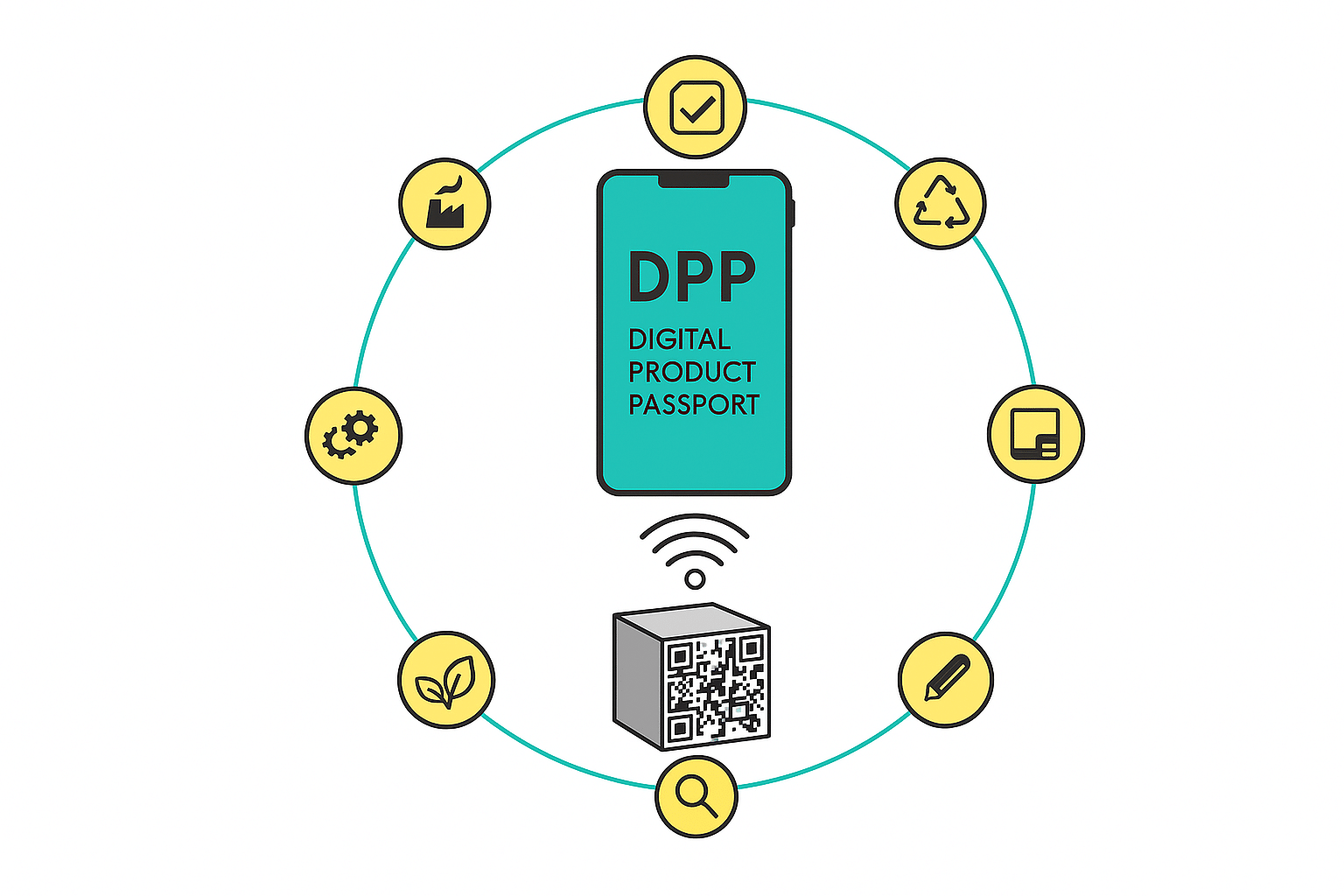The Digital Product Passport (DPP ) is set to revolutionize the way we design, manufacture and recycle goods. Driven by the Green Deal and Europe's circular economy strategy, it will become mandatory in several sectors from 2026. In concrete terms, every item - from a T-shirt to a car battery - will have to carry a QR code orRFID tag giving access, in a single scan, to its complete history: origin of materials, manufacturing process, repairs, software updates, carbon impact, end-of-life instructions.
For manufacturers, the challenge is twofold: to consolidate this dispersed data and to expose it in a secure, readable and interoperable way. This is exactly CIPAM's role: to transform your technical documentation into a digital passport that can be used by the entire value chain - suppliers, maintainers, resellers, consumers, recyclers.

CIPAM's "DPP Ready" offer: train, deploy, enhance
Because a digital passport is not just an IT project, CIPAM has designed a modular offer – “DPP Ready” – that covers the entire cycle: building skills, regulatory framework, technical deployment and data exploitation.
½ day in-company awareness training
A four-hour interactive session (face-to-face or videoconference) to decipher the ESPR regulations, analyze your use cases and review feedback – in particular the deployment on racing tires.
- Price: €1,000 excl.
- OPCO-eligible (up to 75% reimbursement possible)
Consulting & implementation support
A senior consultant co-leads your four-day workshops on data mapping, identifier selection, IT architecture and ROI roadmap.
- Fixed price: €4,000 excl.
- OPCO: €2,500 net
Label-ready technical integration
- Connect your repositories (ERP/PLM) to the DPP CIPAM cloud (API REST / GraphQL).
- Implementation of a NiceLabel automatic labeling solution to generate compliant QR/Tags in production.
- POC in six weeks on a pilot line.
- On request
The result: an operational digital passport, ESPR-compliant, GS1 Digital Link interoperable, and already connected to your labeling and traceability flows.
Financing & subsidies
Your project may be eligible for a France 2030 grant of up to 50% for the DPP feasibility study; our team will help you put together the file.
Understanding the DPP concept
The DPP is based on three inseparable technical pillars:
- A unique identifier on the product (DataMatrix, QR, RFID, NFC, DPM), guaranteeing rapid reading on line and access for the general public from a smartphone.
- A secure database – sovereign cloud, blockchain or ERP – that centralizes manufacturing, usage and sustainability information.
- A universal interface (mobile application, web portal, API) enabling each player to access the information they need, according to their level of authorization.
This architecture is underpinned by open standards: GS1 Digital Link, EPCIS 2.0, ISO/IEC 22603 for metadata and, tomorrow, Smart Rules CSRD for impact measurement.
Why adopt a digital product passport?
Regulations and compliance
Ecodesign for Sustainable Products ( ESPR) directives , CSRD and EPR directives will require traceability of resources and proof of sustainability. The PLR will become the standardized response required by calls for tender and ESG audits.
Market transparency and confidence
Making composition, reparability and carbon footprint visible boosts the confidence of B2B buyers and end consumers alike. This transparency is already reflected in price premiums in fashion, electronics and home furnishings.
Circular loop and new sources of revenue
Thanks to the DPP, you can facilitate reconditioning, predictive maintenance and material recycling. Some textile brands are already monetizing the second life of their products via a marketplace backed by the digital passport.
Examples of sector integration
Technical textiles
On a high-visibility work jacket, the GS1 Digital Link QR links to the fiber-by-fiber sheet, industrial washing recommendations and a carbon footprint simulator. Upon return to the workshop, the passport automatically triggers the repair or recycling workflow.
Professional electronics
Each piece of medical equipment carries an encrypted NFC tag storing serial number, firmware version and maintenance history. The technician can access repair guides offline, reducing intervention time by 25% and feeding the CSRD database without re-entering data.
Rail mobility
The DPM DataMatrix plates engraved on the brake components communicate their ID-Rail reference, remanufacturing date and tightening torques. The SNCF validates EASA compliance and qualifies the end-of-life metal recycling rate.
Measured benefits for our customers
- Time savings: up to 40% reduction in document searches in the after-sales service department.
- Reduction in non-conformities: -30% of deviations detected during ISO 9001 audits.
- Extended service life: +18% thanks to passport-based predictive maintenance.
- New value proposition: +8% premium rate justified by environmental transparency.

Faq
Our answers to the most frequently asked questions about the Digital Product Passport (DPP)
No, not yet: the European Commission is starting with textiles, batteries, electronics and construction materials, with generalization planned between 2026 and 2030.
In pilot mode, expect to pay between €15,000 and €30,000 (login, database, portal).
With DPP Ready CIPAM: 45-minute diagnosis, 6-week POC, then 3 to 6 months for factory roll-out after KPI validation.
A granular authorization mechanism limits access to critical fields. Strategic data can remain on-premise, with only a hash or metadata being publicly exposed.
We structure information according to EPCIS 2.0 and GS1 Digital Link, ensuring compatibility with customs systems, EPR eco-organizations and logistics platforms.
Yes: an NFC / RFID tag or QR DataMatrix stores a vital minimum (identifier, last revision, URL fallback). The application re-synchronizes as soon as a connection is found.
PLRs follow supply-chain standards and contain regulatory information; QR marketing refers to promotional content and does not require authentication.
Yes: data is linked to the product, not to the person. In the case of nominative after-sales service, explicit consent and the right to be forgotten are included.
Would you like support in setting up your DPP?
Let’s discuss your context to map your product data, identify regulatory gaps and estimate potential ROI.